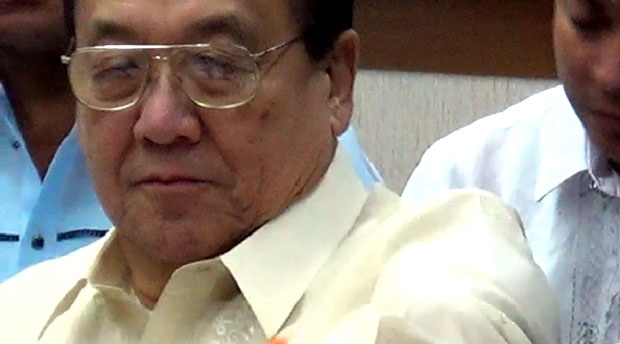
Jesus Arranza, FPI chairman (File photo by RYAN LEAGOGO / INQUIRER.net)
The government continues to lose an as much as P200 billion in revenues annually due to increasingly sophisticated forms of smuggling, with petroleum being the top product being smuggled into the country, according to Jesus Arranza, chairman of the Federation of Philippine Industries.
But instead of trying to surreptitiously bring the products into the country while authorities look the other way, Arranza said the preferred method nowadays is so-called “technical smuggling,” through which importers underdeclare the value of their products being brought into the country and, in the process, pay less duties.
“Based on our computations, and comparing this with International Monetary Fund data on [other countries’] exports to the Philippines, we lose P200 billion every year,” the anti-smuggling advocate said, explaining that these losses do not include the damaging impact of “multiplier effects” across the economy.
“Smuggling affects local industries,” he said. “They end up with reduced sales, and because of that, they reduce what they pay to the government.”
Apart from rampant smuggling of petroleum products – long the subject of complaints by large oil firms like Petron Corp., Pilipinas Shell and Chevron – Arranza said technical smuggling is also rampant with tobacco, cement, palm oil, wood and steel bars.
“There is rice smuggling, too, but that has abated recently,” he said, adding that government’s efforts had managed to deter some smugglers of late.
He explained, however, that the problem was “multifaceted” and smugglers had adapted their methods to evade government’s efforts. One such scheme is “warehousing” where the value of duty-free raw material imports meant for the production of exportable goods are underdeclared.
“The racket is underdeclaration or connivance with some government agencies where they tamper with formula of manufacture,” Arranza said. “They’ll declared an increased amount of wastage, for example.”
Arranza said the FPI’s own estimate put the magnitude of the smuggling problem at P900 billion over the last five years, bringing it close to the P200 billion in annual government losses estimated earlier.
On Tuesday, FPI led a multisectoral group in launching the Anti-Crime Council of the Philippines made up of government enforcement agencies, private business, civic groups, the academe and other non-governmental organizations.
The group was convened during the first Anti-Illicit Trade Summit of the Fight Illicit Trade (FIT) movement in Makati City. FIT was established three years ago as an expanded anti-smuggling advocacy of the FPI. /atm